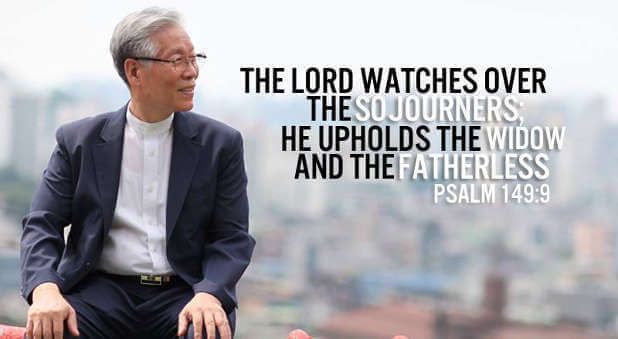Filmmaker Brian Ivie was a Southern California boy chasing fame. After reading a story about abandoned children in South Korea, he traveled 6,000 miles to film an amazing rescue story—his own.
“Before we left, a lot of people told me that I had a savior complex, that I was engaging in the modern-day white man’s burden,” Ivie says. “And in some way, they were right. I didn’t want to make a documentary in America about pedestrian domestic issues. I knew it wasn’t as sexy to film a documentary on skid row about abandoned babies. It had to be daring. It had to be exotic.”
The amazing result was a film titled The Drop Box, which tells the story of South Korean Pastor Lee Jong-rak and his heroic efforts to embrace and protect the most vulnerable members of society. It is a heart-wrenching exploration of the physical, emotional and financial toll associated with providing refuge to orphans that would otherwise be abandoned on the streets.
But The Drop Box movie is also a story of hope—a reminder that every human life is sacred and worthy of love.
South Korea is not the only country grappling with the issue of orphan care. Around the world, there are more than 150 million orphans waiting for forever families to call their own. On the door of Jong-rak’s orphanage is an inscription that reads:
“This is a facility for the protection of life. If you can’t take care of your disabled babies, don’t throw them away or leave them on the street. Bring them here.”
The Drop Box: How 500 Abandoned Babies, an Act of Compassion, and a Movie Changed My Life Forever, which won the grand prize at the Christian Film Festival in 2013, will be shown in theaters across the country beginning March 1. But it is more than a story about Jong-rak’s ministry. It is also the amazing story of how Ivie came to meet and know Jesus in a real and unwavering way.
“To all of those people who thought so, I really didn’t have a savior complex. “That summer, being a Christian meant feeling not just forgiven, but also wanted. Not just pardoned, but also delighted in. It meant that forgiveness was not the destination of Christianity, but more of the road. The road leading all the way home.”












